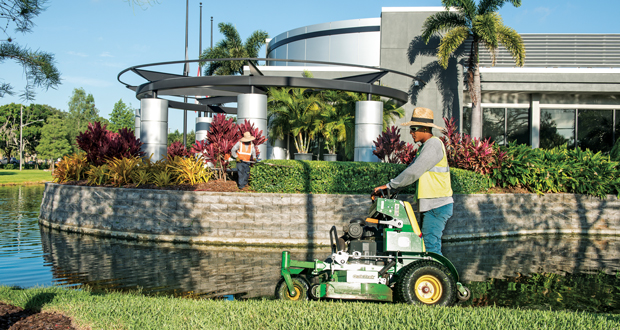
Imagine performing maintenance for a homeowner’s association: You edge one tree lawn and notice a section you missed on the one across the street. While you’re there, you spot a tree limb that still needs to be trimmed. Finally, you gear back up to finish the edging job.
No big deal, right? Wrong.
When the team at Ameriscape Services thought about how much time crew members wasted when “dead walking” — ambling from one area of a site to another with a piece equipment that’s not running — it decided to do something about it.
Beginning in 2017, the company’s leaders developed path-of-motion maps, mazelike schemes that lay out the route for every piece of equipment on a given site. Ameriscape Services also developed gannt maps, which specify the amount of time it should take someone to complete each path of motion.
When the company takes on a new site, Ameriscape’s production manager and branch manager are responsible for building the path of motion. Typically, the paths are created in the wintertime when the company isn’t as busy.
“You’d be amazed, if (crews) don’t follow that path of motion, the time that it adds to doing a task,” says Joseph Chiellini, founder and CEO of Ameriscape Services in Florida. “There are no missed areas when these maps and gannts are put in place.”
In fact, on one property, a crew cut down its service time from six to four hours.
“It’s very competitive in Florida; it’s a dog-eat-dog world,” Chiellini says. “We have to find ways to be more efficient and give better service.”
To further boost its efficiency game, Ameriscape leans on 22-inch mowers for smaller turf areas, eliminating the need for a line trimmer; incorporates racks on larger mowers to hold string trimmers while on large commercial properties; and places gas cans on larger sites at the places where smaller pieces of equipment will need to be refueled.

